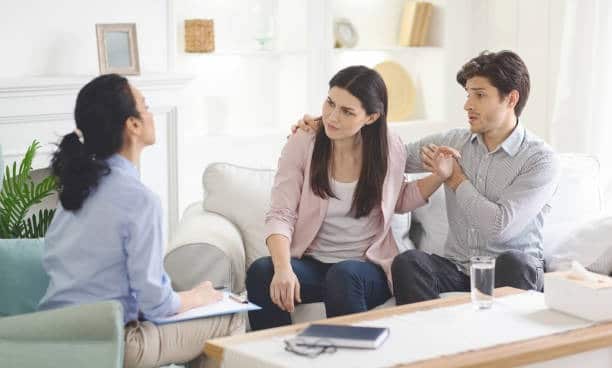Couples counselling London can benefit the relationship of a couple by assisting in communication, how they deal with problems, and how they resolve conflicts and grievances. Communication-based therapy can further enable partners to process their emotions, increase their understanding of each other, and, over time, create healthy relational patterns of communicating.
Many couples may suffer together for years before they choose to seek therapy, but it is always best to go sooner rather than later. Unhealthy behaviors and resentful feelings become entrenched and more difficult to change the longer they have been present. A few couples will go to marriage counseling, planned as a “check-in” to help solidify or strengthen their partnership or get a deeper understanding of their partner.
Couple counselling London can be preventative, while some couples who cannot have premarital counseling can do premarital counseling and do it for the stated purpose of messing up or repairing things prior to the marriage. Once more, premarital counseling can help a couple better understand one another and manage any disagreements they may have before getting married.
Relationship counselors London generally work with:
The intervention assists both partners in seeing their relationship more realistically, reduces blaming, and instills the concept that what happens to them occurs to them together. The partners improve their perceptions of the relationship and relate to it in a way that encourages them to stay together.
Dysfunctional behavior is changed in that the partners learn to behave in ways that do not amount to psychological, physical, or emotional harm. The London trauma therapy works with the partners about the relationship issues and possibly recommends individual services for any partner for issues such as anger management or substance use disorder, based on the needs of the partners and the issues being worked on.
The change in communication is obtained by creating closeness and commitment to each other to remain friends through the process. Typically, the therapist is working with the partners concerning how they can communicate in a more supportive, positive, and effective manner. The therapy purposely emphasizes empathy and understanding.
The threat of emotional isolation or avoidance is also reduced. The therapist can support the partners in learning ways to, either as individuals or as a couple, if they feel comfortable, express their feelings to others and create relational behaviors that encourage intimacy, openness, and sharing.
The American Association of Marriage and Family Therapists estimates that 90% of couples that follow through with therapy as a couple with a qualified couples therapist will experience an improvement in their emotional well-being (results may vary depending on your therapist, but between 70% and 90% of hybrid couple therapy will be useful). However, about two-thirds report that the couples therapy improved their physical well-being as well.
Marriage Counseling or Marriage Therapy?
Marriage counseling focuses on establishing environments where conversations and communication can take place, with the couples looking to assist each other’s emotional support and still listening to any concerns or challenges their partner experiences. It is the counselor’s responsibility to guide these in-depth discussions to guarantee that they result in fruitful discussions. Marriage counseling may consist of the following:
- Systemic issues are found and then addressed as they mutually affect both parties
- Solutions are developed that both parties agree to and implement in their home
- Couples learn to talk to and listen to each other in a safe environment
- Commitment to the other, respect, and love for one another are reinforced during and after the process.
Bottom Line
Couples typically receive some benefit from counseling after taking the time to review their objectives and creating steps to attain relationship objectives; however, successful marriage counseling is understanding how to work through challenges as a couple and as an individual to provide a contemporaneous opportunity for understanding their relationship and themselves.
When you redefine and reframe your effort as both you and your partner as a couple, as opposed to presumptuously asking your partner to come for the sake of your gain, you provide an avenue for communication as a couple and to face the themes and challenges head-on. An open and willing partner leads to a much stronger outcome.











Leave a Comment